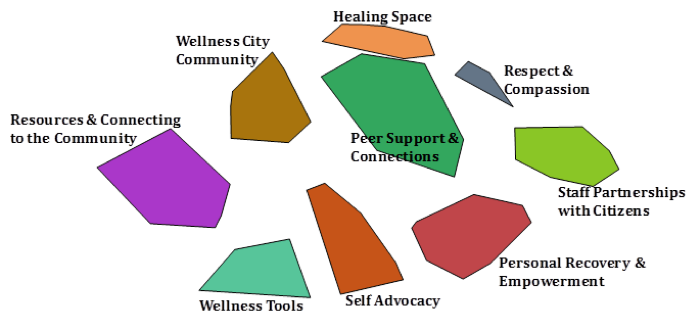I’m Mary Kane, President of Concept Systems, Inc. and a specialist in stakeholder engagement. I’ve served as a community organization leader and strategic facilitator for groups of all kinds, and then as the lead resource for Group Concept Mapping. I’m lucky that my work connects the face to face aspects of facilitation consulting with a reliable way to organize those voices.
When we establish expectations and priorities for meaningful planning and evaluation, isn’t it obvious that we would seek information from affected stakeholders?
Well, yes and no. Different environments have different definitions of “stakeholder”. In an authority hierarchy, authority holders define the stakeholders, and so define the kind of input to be used in decision making. The concept of Community-Based Participatory Research (CBPR) started in the corporate world, and then gained use in areas like community-building, public health, and social support systems. CBPR evolved to community-centered PR, community-authored PR, and the mantra of disenfranchised communities: “Nothing about us without us”.
“Valuing Voice” comes out of this tradition. We say that Valuing Voice recognizes and recruits the perspectives of the communities of interest, and also assertively seeks the often unheard voice of the person, family or system most affected or in need.
We use Group Concept Mapping to ask the challenging question, and then listen! The trick is to make sure that we drill for the “right people” to answer the question, and support their participation however necessary. This means using unconventional means to find and encourage people, meeting them where they are, and respecting their words and values.
Hot Tip: Use simple rules to identify, engage and respect those who are most affected by an issue. We ask people what they think, know or feel using an incomplete sentence that the person can complete. We then ask them how they think and value the issues that come from the question.
Rad Resource: We used Group Concept Mapping to uncover what adults who have severe mental illness think “recovery” looks and feels like for them. We went to the members of recovery communities, and asked: A specific thing that makes this community effective in supporting a person’s recovery is… They offered over 1000 ideas, like spirituality, resources for learning, and “citizens are people, not a diagnosis”.
Here is the map of their results, authored completely by the participants:
Lesson Learned: When we ask those who experience the need we are trying to address, the richness of the results far outweighs the burden of seeking, finding and respecting the voices of the community.
Evaluation 2015 Workshop: To learn more about using Group Concept Mapping to Value Voice, please sign up for our workshop on Tuesday November 10th.
Do you have questions, concerns, kudos, or content to extend this aea365 contribution? Please add them in the comments section for this post on the aea365 webpage so that we may enrich our community of practice. Would you like to submit an aea365 Tip? Please send a note of interest to aea365@eval.org . aea365 is sponsored by the American Evaluation Association and provides a Tip-a-Day by and for evaluators.


Well done it brings back memories when the perception of evaluation was punitive and the efforts made to foster the notion that evaluation findings should be a collaborative experience to identify strengths and challenges and work together to foster positive change and meet the needs of the clients served by the program.